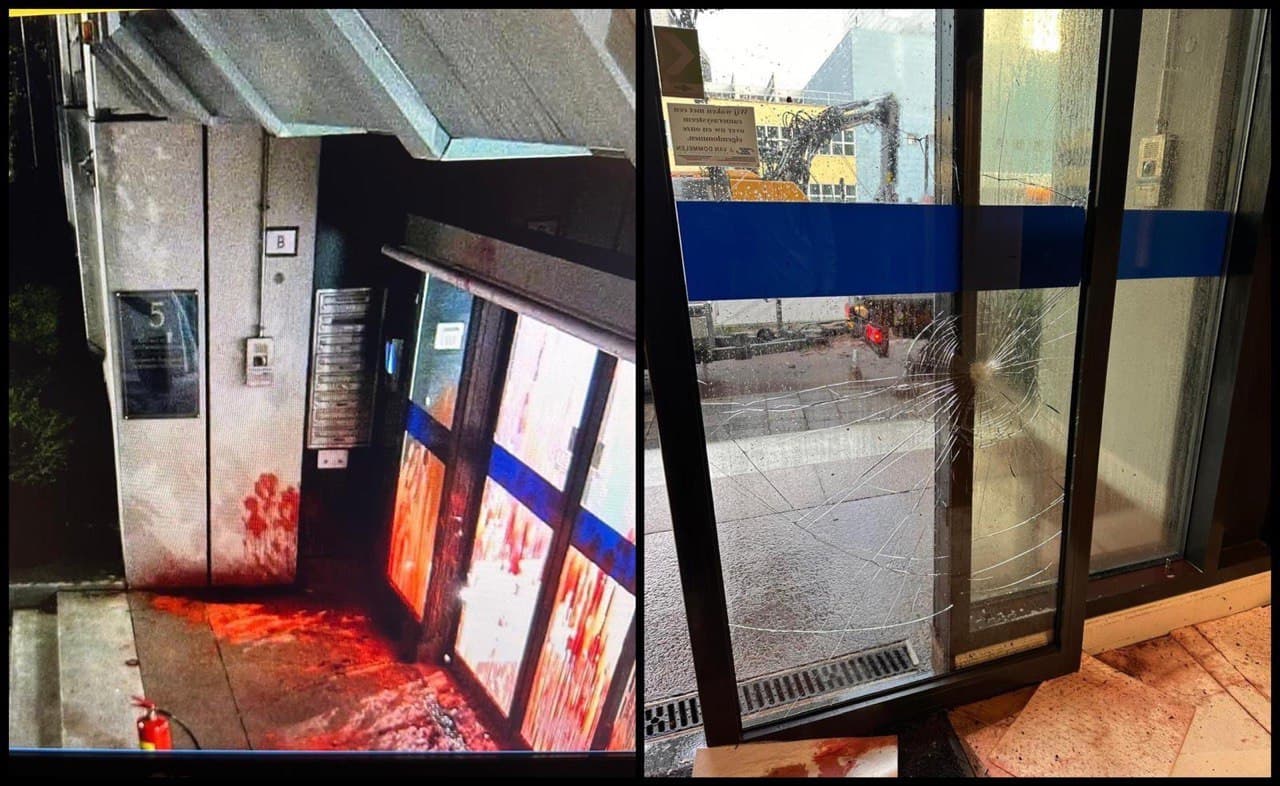Three Arrested for Vandalizing Israeli Embassy in The Hague, Security Heightened
In a troubling incident that has raised concerns about diplomatic security, three individuals were arrested today for vandalizing the Israeli embassy in The Hague. The suspects reportedly damaged the embassy"s entrance door, poured red paint at its entrance, and broke windows. The swift response from Dutch police resulted in their detention for questioning on charges of property damage.
Background & Context
The Israeli embassy in The Hague serves as a critical diplomatic outpost for Israel in the Netherlands, a country known for its commitment to international law and diplomacy. The vandalism incident comes amid heightened tensions surrounding the Israeli-Palestinian conflict, which has recently seen a resurgence in violence and public demonstrations across Europe. The act of damaging a diplomatic site not only contravenes international norms but also poses questions about the safety of embassies and their staff.
Historically, embassies have been protected under international law, and attacks against them are often viewed as attacks against the state they represent. This incident is particularly significant in light of recent developments in Europe regarding the Israeli-Palestinian situation, which have ignited passionate responses from various segments of the population. The incident in The Hague echoes similar situations in other European cities where diplomatic missions have faced protests and vandalism.
Key Developments
Following the vandalism, Dutch authorities quickly cordoned off the area surrounding the embassy, ensuring the safety of diplomatic personnel and the public. The police have initiated an investigation to uncover the motives behind the attack, which could involve political or ideological motivations linked to the ongoing conflict in the region. Eyewitness accounts describe a chaotic scene as the suspects were apprehended, with bystanders expressing shock at the aggressive nature of the act.
Local officials have condemned the vandalism, emphasizing the importance of protecting diplomatic missions. A spokesperson for the Dutch government stated, “Attacks on embassies are unacceptable and undermine the principles of international diplomacy.” Security measures around the Israeli embassy have been significantly heightened since the incident, with increased police presence and surveillance to deter further acts of vandalism.
Broader Impact
This incident raises broader questions about the safety of diplomatic missions in Europe, particularly in light of rising anti-Israel sentiment in various countries. Experts suggest that the vandalism may be indicative of a growing trend of hostility towards Israeli institutions abroad, fueled by ongoing conflicts and social media narratives. The situation has compelled many to reflect on how such acts of vandalism can affect diplomatic relations and international cooperation.
In a related context, UK officials have urged EU leaders to silence criticism regarding their handling of the Israeli-Palestinian conflict as tensions mount over potential peace talks involving key figures like Trump and Putin. These recent developments highlight the delicate balance that European nations must maintain in addressing the concerns of their citizens while upholding diplomatic integrity.
What"s Next
As investigations continue, the Dutch police are expected to release further details regarding the motives of the arrested individuals. Security protocols around the Israeli embassy will likely remain heightened as authorities assess the potential for additional protests or acts of vandalism. The incident may also spark discussions within the international community regarding the protection of diplomatic missions, particularly in regions experiencing unrest.
Furthermore, as the global conversation about the Israeli-Palestinian conflict evolves, public demonstrations and political actions may continue to impact embassies worldwide. The need for effective communication and understanding between nations is more crucial than ever, especially in light of the recent escalation of violence in the region. Observers will be closely monitoring the situation as it unfolds, with implications that could resonate far beyond The Hague.


![[Video] Heavy clashes and gunfire reported in Baghdad, Iraq](/_next/image?url=%2Fapi%2Fimage%2Fthumbnails%2Fthumbnail-1768342239932-848qsh-thumbnail.jpg&w=3840&q=75)




![[Video] Gunfire between Iraqi security forces and Sadr militias in Baghdad](/_next/image?url=%2Fapi%2Fimage%2Fthumbnails%2Fthumbnail-1768343508874-4redb-thumbnail.jpg&w=3840&q=75)
